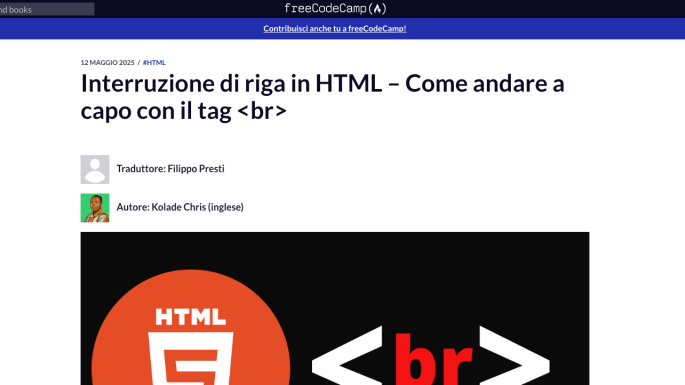- How did different presentations and case studies on open and collaborative coding projects inspire your approach to your contribution?

Throughout this module, exploring case studies and presentations about open-source and collaborative coding projects gave me a clearer understanding of what it means to be part of a global, community-driven initiative. The presentations didn’t just explain what open-source is, but they highlighted how individuals from diverse backgrounds can come together, contribute meaningfully, and create tools and knowledge that benefit everyone. This inspired me to view my own contribution not just as a technical task, but as a part of something much bigger.
Shared ownership
One key idea that stood out was the importance of shared ownership. In projects like Linux or Mozilla Firefox, there is no single “owner” in the traditional sense. The responsibility is distributed, and trust is built through transparency, version control, and open dialogue. This shaped my mindset when working on the Italian translation of freeCodeCamp. I realised that I wasn’t just translating text, I was helping maintain the quality and accessibility of a valuable learning resource. That sense of collective purpose gave my work more meaning.
Learning through collaboration
Another takeaway was how open-source projects encourage learning through collaboration. Several case studies emphasised how contributors often grow their skills by reviewing others’ work, receiving feedback, and adapting to community guidelines. I experienced this directly during my contribution process. Reviewing previous translations, checking existing glossaries (major challenge for me was figuring out whether specific tech terms in English should be translated into Italian or kept in their original form), and ensuring consistency taught me a lot, not just about language, but about communicating ideas clearly for a technical audience. This peer-driven quality control made me more careful and reflective in my work.
Different roles and contributions
The module also highlighted how different roles and contributions are valued in open-source communities, not just coding. Documentation, translation, testing, design, and community moderation are equally essential. This encouraged me to view my translation work as a legitimate and valuable contribution. It challenged the assumption that only code matters, and it reinforced the idea that diversity of skills strengthens open-source projects (more on this in the blog post for Topic #6 ~ Contributions beyond code).
Sharing is caring
Lastly, seeing how open-source projects are sustained through collaboration, not competition, changed the way I think about software development. In open-source communities, people are more likely to share solutions, answer questions, and help each other improve. That spirit of openness and mutual support shaped how I approached my contribution: not as a solo task, but as a small but meaningful piece of a larger, cooperative effort.
The importance of clarity in licensing
An especially thought-provoking moment during the module came from a case study discussed by our lecturer: Douglas Crockford’s license for JSLint and JSMin. Although the tools were released under a version of the MIT License, Crockford famously added a condition stating:
“The software shall be used for Good, not Evil”.
As Black Duck (2016) points out, while “software” has a clear and accepted definition, terms like “good” and “evil” are vague and subjective, making them problematic when used in legal contexts.
While amusing at first, this clause actually violates core Open Source Initiative (OSI) principles, in particular the rules against discrimination and restrictions on use.
Principle 5: No Discrimination Against Persons or Groups
“The license must not discriminate against any person or group of persons.”Principle 6: No Discrimination Against Fields of Endeavor
Open Source Initiative (2024)
“The license must not restrict anyone from making use of the program in a specific field of endeavor.”
IBM even had to contact Crockford to ask for written permission to “do evil” (DesdeLinux, nd), highlighting how problematic and legally ambiguous such subjective terms can be.
This example effectively demonstrates the importance of carefully written licenses and how even well-meaning modifications can undermine the openness of a project. It emphasised that true open-source licensing isn’t just about releasing code; it’s about enabling free and equal access for everyone, without arbitrary restrictions. It was a valuable reminder that clarity, consistency, and inclusiveness are just as important in licensing as they are in code or documentation.
Conclusion
In short, learning about open-source collaboration helped me understand the deeper values behind it ~ openness, trust, respect, and learning ~ and guided me to approach my project contributions not just as work, but as participation in a global learning movement.
As part of my contribution to the open-source community, I translated a freeCodeCamp post into Italian to make its content more accessible to Italian-speaking learners. You can check out the approved translation at the following link: https://www.freecodecamp.org/italian/news/interruzione-di-riga-in-html/.

References
Black Duck (2016) The JSON License and the Problem with “Good” and “Evil” | Black Duck Blog. Available at: https://www.blackduck.com/blog/json-license-limitations.html (Accessed: May 20, 2025).
DesdeLinux (no date) Can free software be used for evil? (A serious article, about how JSON violates your freedom). Available at: https://blog.desdelinux.net/en/can-free-software-be-used-for-evil-a-serious-article-on-how-json-threatens-your-freedom/ (Accessed: May 20, 2025).
Open Source Initiative (2024) The Open Source Definition – Open Source Initiative. Available at: https://opensource.org/osd (Accessed: May 20, 2025).
